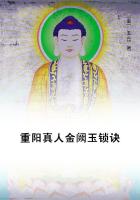Or again, if you ever go up Deeside in Scotland, towards Balmoral, and turn up Glen Muick, towards Alt-na-guisach, of which you may see a picture in the Queen's last book, you will observe standing on your right hand, just above Birk Hall, three pretty rounded knolls, which they call the Coile Hills. You may easily know them by their being covered with beautiful green grass instead of heather. That is because they are made of serpentine or volcanic rock, which (as you have seen) often cuts into beautiful red and green marble; and which also carries a very rich soil because it is full of magnesia. If you go up those hills, you get a glorious view--the mountains sweeping round you where you stand, up to the top of Lochnagar, with its bleak walls a thousand feet perpendicular, and gullies into which the sun never shines, and round to the dark fir forests of the Ballochbuie. That is the arc of the bow; and the cord of the bow is the silver Dee, more than a thousand feet below you; and in the centre of the cord, where the arrow would be fitted in, stands Balmoral, with its Castle, and its Gardens, and its Park, and pleasant cottages and homesteads all around. And when you have looked at the beautiful amphitheatre of forest at your feet, and looked too at the great mountains to the westward, and Benaun, and Benna-buird and Benna- muicdhui, with their bright patches of eternal snow, I should advise you to look at the rock on which you stand, and see what you see there. And you will see that on the side of the Coiles towards Lochnagar, and between the knolls of them, are scattered streams, as it were, of great round boulder stones--which are not serpentine, but granite from the top of Lochnagar, five miles away. And you will see that the knolls of serpentine rock, or at least their backs and shoulders towards Lochnagar, are all smoothed and polished till they are as round as the backs of sheep, "roches moutonnees," as the French call ice-polished rocks; and then, if you understand what that means, you will say, as I said, "I am perfectly certain that this great basin between me and Lochnagar, which is now 3000 feet deep of empty air was once filled up with ice to the height of the hills on which I stand-- about 1700 feet high--and that that ice ran over into Glen Muick, between these pretty knolls, and covered the ground where Birk Hall now stands."
And more:- When you see growing on those knolls of serpentine a few pretty little Alpine plants, which have no business down there so low, you will have a fair right to say, as I said, "The seeds of these plants were brought by the ice ages and ages since from off the mountain range of Lochnagar, and left here, nestling among the rocks, to found a fresh colony, far from their old mountain home."
If I could take you with me up to Scotland,--take you, for instance, along the Tay, up the pass of Dunkeld, or up Strathmore towards Aberdeen, or up the Dee towards Braemar,--I could show you signs, which cannot be mistaken, of the time when Scotland was, just like Spitzbergen or like Greenland now, covered in one vast sheet of snow and ice from year's end to year's end; when glaciers were ploughing out its valleys, icebergs were breaking off the icy cliffs and floating out to sea; when not a bird, perhaps, was to be seen save sea-fowl, not a plant upon the rocks but a few lichens, and Alpine saxifrages, and such like--desolation and cold and lifeless everywhere. That ice-time went on for ages and for ages; and yet it did not go on in vain. Through it Madam How was ploughing down the mountains of Scotland to make all those rich farms which stretch from the north side of the Frith of Forth into Sutherlandshire. I could show you everywhere the green banks and knolls of earth, which Scotch people call "kames" and "tomans"-- perhaps brought down by ancient glaciers, or dropped by ancient icebergs--now so smooth and green through summer and through winter, among the wild heath and the rough peat-moss, that the old Scots fancied, and I dare say Scotch children fancy still, fairies dwelt inside. If you laid your ear against the mounds, you might hear the fairy music, sweet and faint, beneath the ground. If you watched the mound at night, you might see the fairies dancing the turf short and smooth, or riding out on fairy horses, with green silk clothes and jingling bells. But if you fell asleep upon the mounds, the fairy queen came out and carried you for seven years into Fairyland, till you awoke again in the same place, to find all changed around you, and yourself grown thin and old.
These are all dreams and fancies--untrue, not because they are too strange and wonderful, but because they are not strange and wonderful enough: for more wonderful sure than any fairy tale it is, that Madam How should make a rich and pleasant land by the brute force of ice.
And were there any men and women in that old age of ice? That is a long story, and a dark one too; we will talk of it next time.















